On the west side of Columbia is the town of Cayce (KAY-see), and the Cayce Historical Museum.
Location
This small museum is housed in a recreation of a 1765 trading post. It later became British-held Revolutionary War Fort Granby, then the family home of the Cayce family, which in turn, became the name of the town.
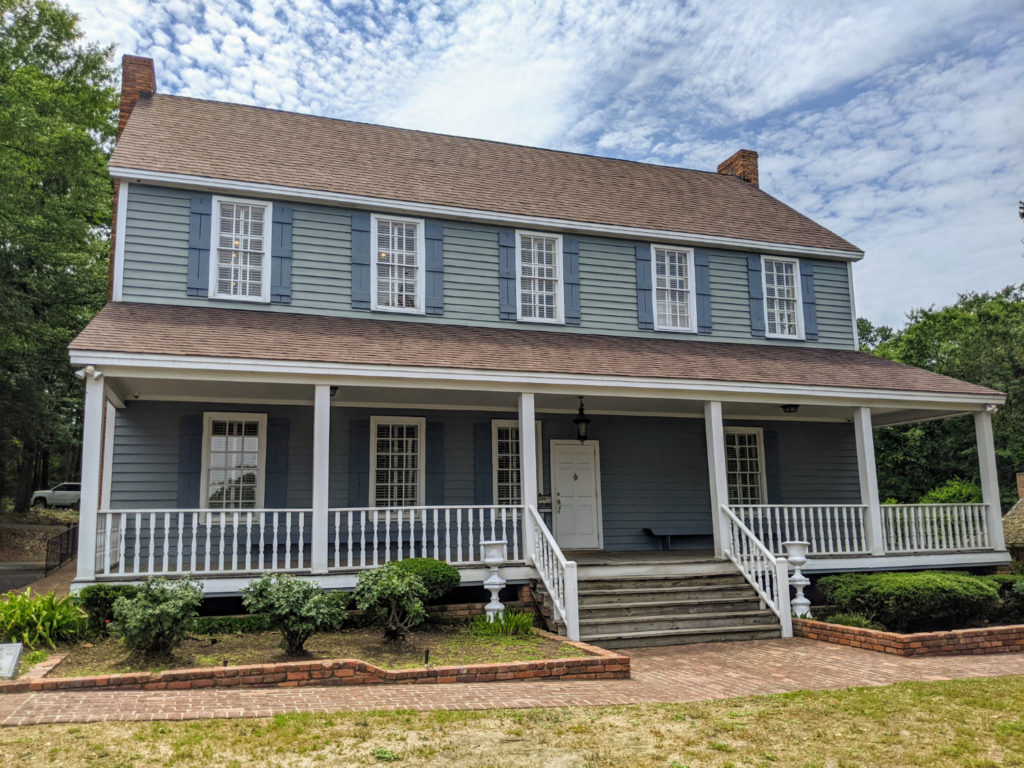
The original house was lived in by the Cayce family until the 1940s when it fell into disrepair. This reconstructed home sits behind the Cayce City Hall, which feels a bit off the beaten track. Apparently, the hill that the municipal building sits on used to the be home site of a plantation. It does look down over a great deal of land, part of which is now a public park.
The museum is tucked away into a corner behind the municipal building, with a few surrounding structures. Parking is shared between the museum and the main building.
Inside
The inside of the old trading post was not recreated the same as the original building, which used to have something like 21 rooms. Instead, the museum has basically four large display rooms, two downstairs and two upstairs. And for $3, you get a fully-guided tour of the whole shebang!
The guide leads you through the history of Granby/Cayce, from Native American tribes, through several fort iterations, and on to its heyday. He is aided by several dioramas and artifacts dredged from the river and the surrounding land and lovingly preserved. Check out the old photo of the original house and the actual table from the photo!
The first room has a lot of that deeper history. The room across the hall is more about 20th century Cayce, with photos of the Cayce family on one wall and all the mayors on another. Display tables take up the middle of the room and a large “The history of Cayce in 50 objects” on the inner wall. One table contains a model of a railroad turn station, and a wall display details the building of the airport and training of the Doolittle Raiders of WWII.
Upstairs is a beautiful blue mural of the river. Don’t miss the cat! (It’s hard to.) On one side is a room partially set up as an inn, with a lady spy (I forget her name) who smuggled messages during the Revolutionary War. Other dresses and home goods are in this room.
Across the hall is a spectacular collection of Native American artifacts, each collected by one local man, Samuel Watson. A wall display and several display tables contain arrowheads, pottery shards, and illustrations of local industry.
Outside
There are a few buildings around the outside of the main house. I think these are used during living history or education days. There’s a small cabin (which might be an outdoor kitchen), a smokehouse, and a train caboose.
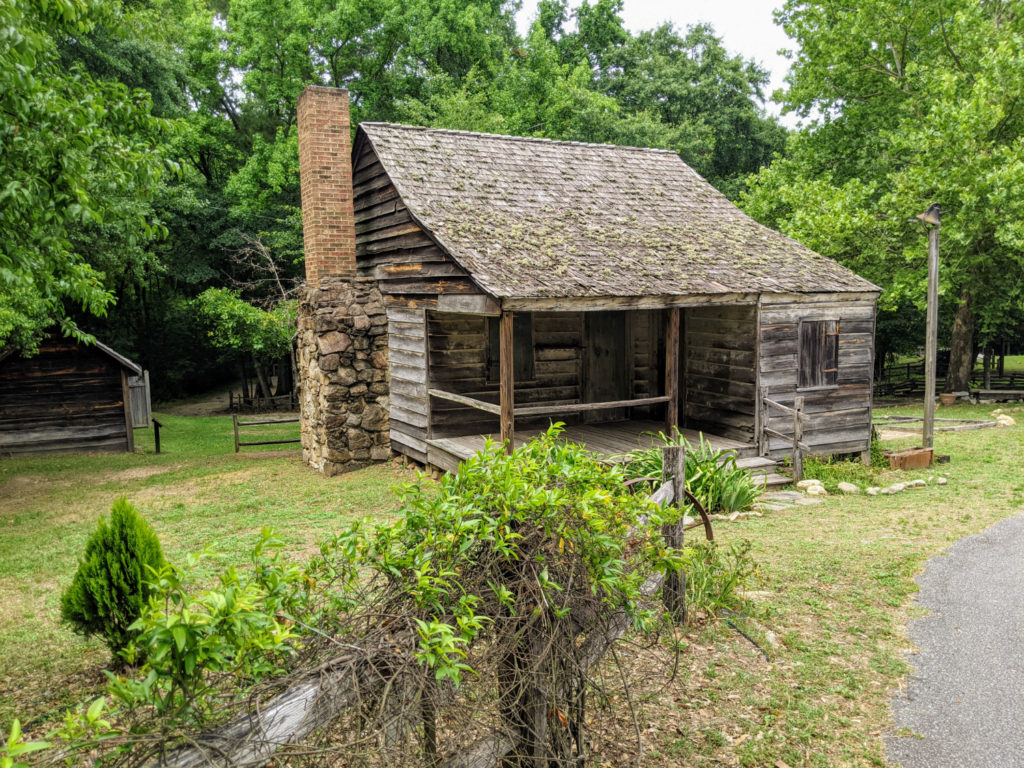
Cabin/kitchen 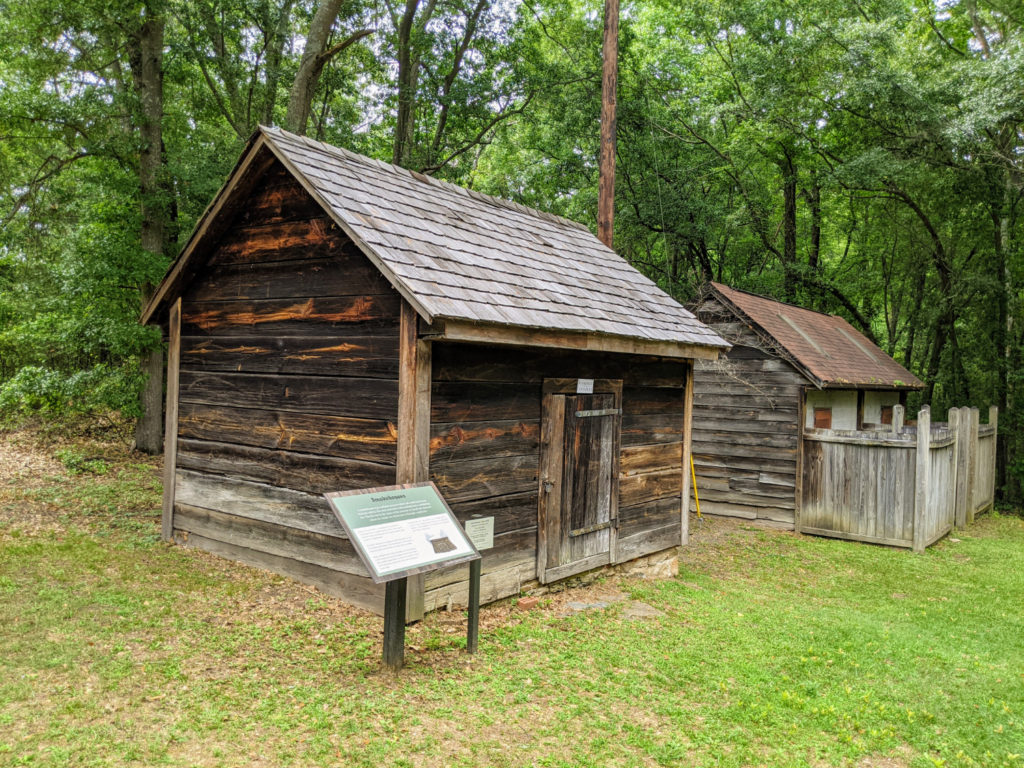
smokehouse 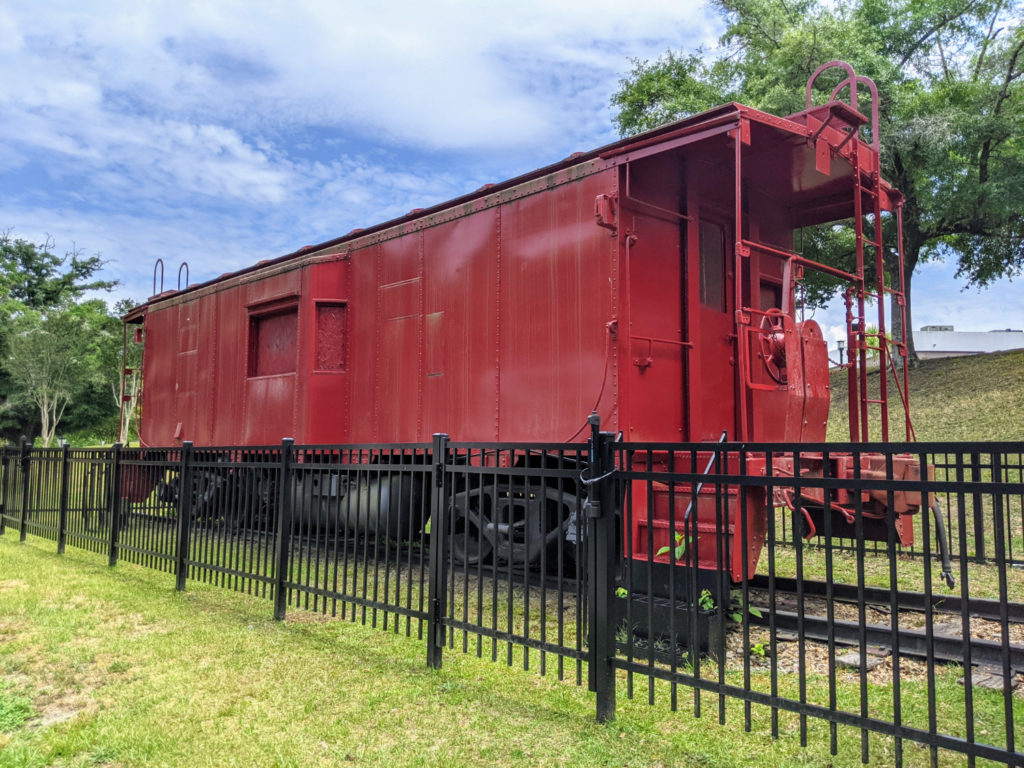
train car/caboose?
Paths behind these buildings lead you back to a large event pavilion. And you can also walk over to a playground nearby.
To Visit Cayce Historical Museum
The Cayce Historical Museum is only 4 miles / 12 minutes from the center of Columbia, but it has a much different feel than the city. A sign at the entrance only says that there’s a “small admission charge,” which turns out to be $3 for an adult. The entire tour was maybe 30 minutes. I was on-site for less than an hour, which included some walking around outside.
Museum hours are generally Tuesday-Friday from 9 am-4 pm, and 2-4 pm on the weekends; closed Monday. But make sure to check the website before you go since there are days they plan to be closed. However, I showed up once during museum hours and it was closed then too. Still, it’s worth the effort for a little more area history. Particularly about Washington’s crossing from Cayce (then Granby) into the new town of Columbia.
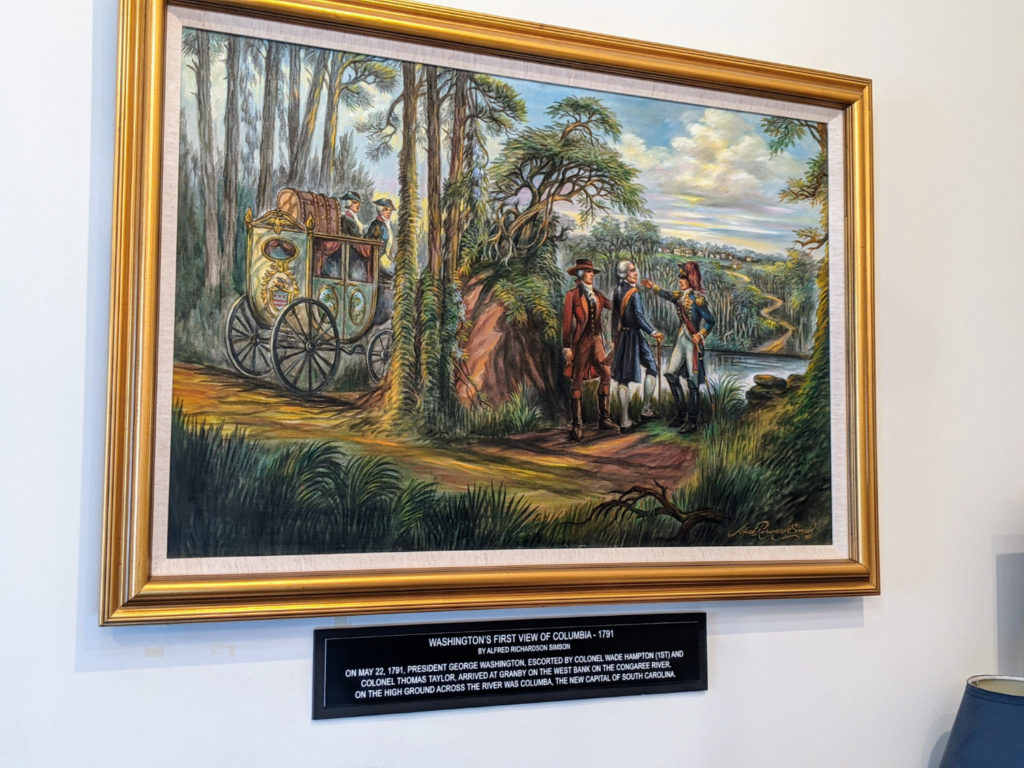
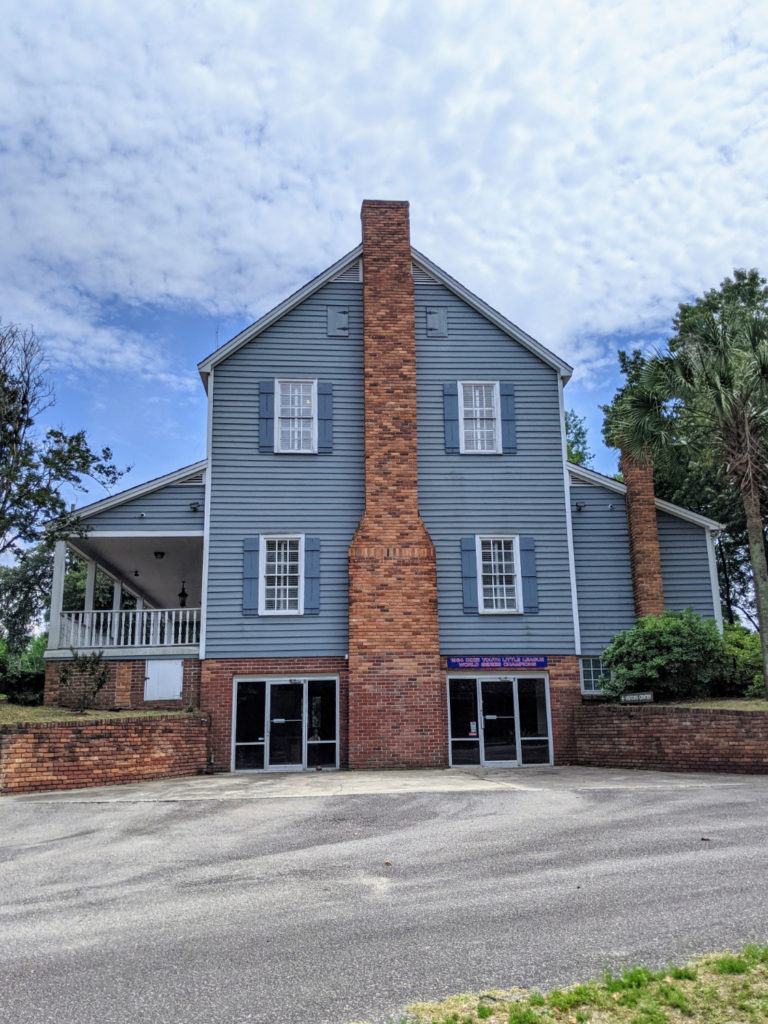
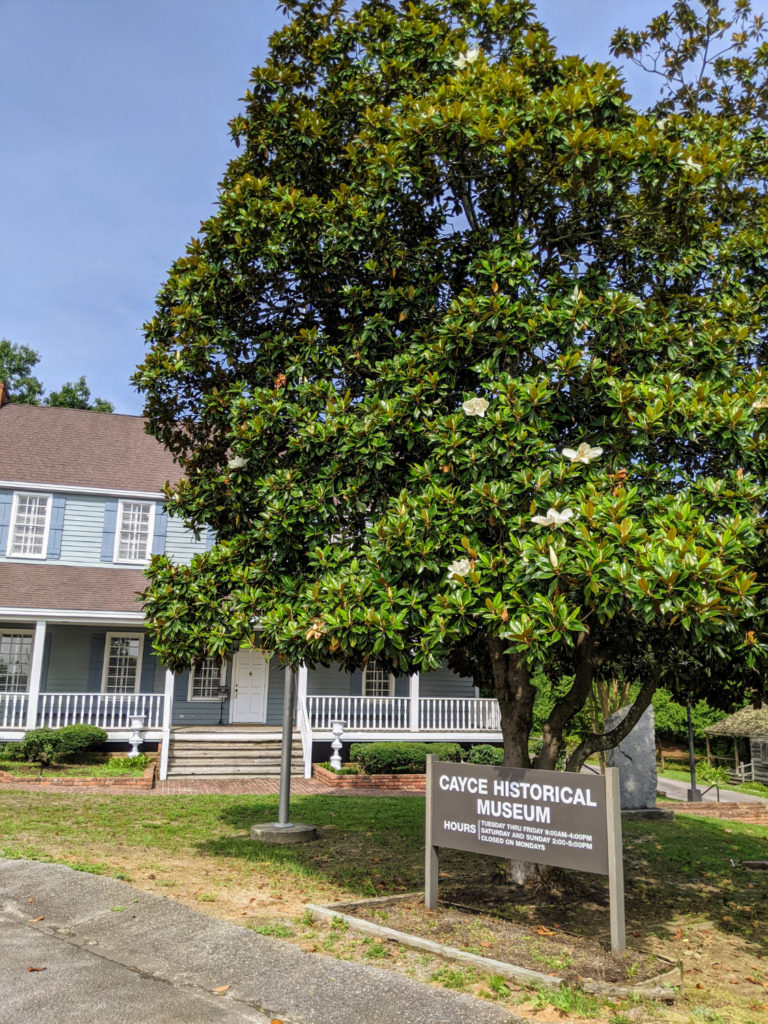
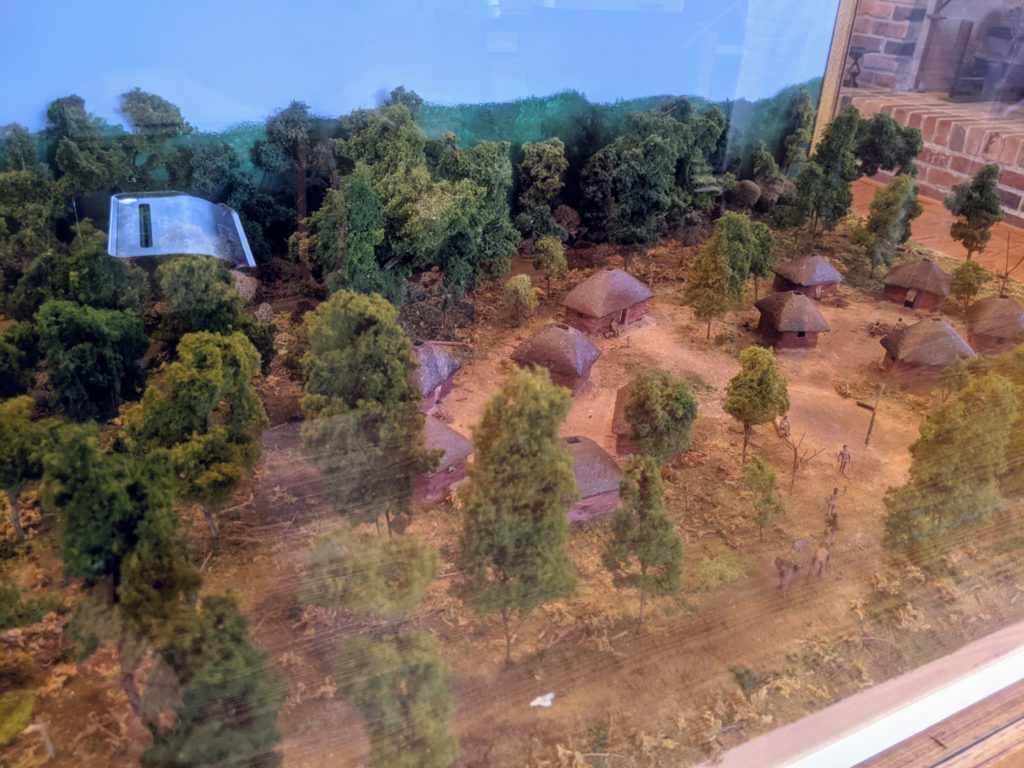
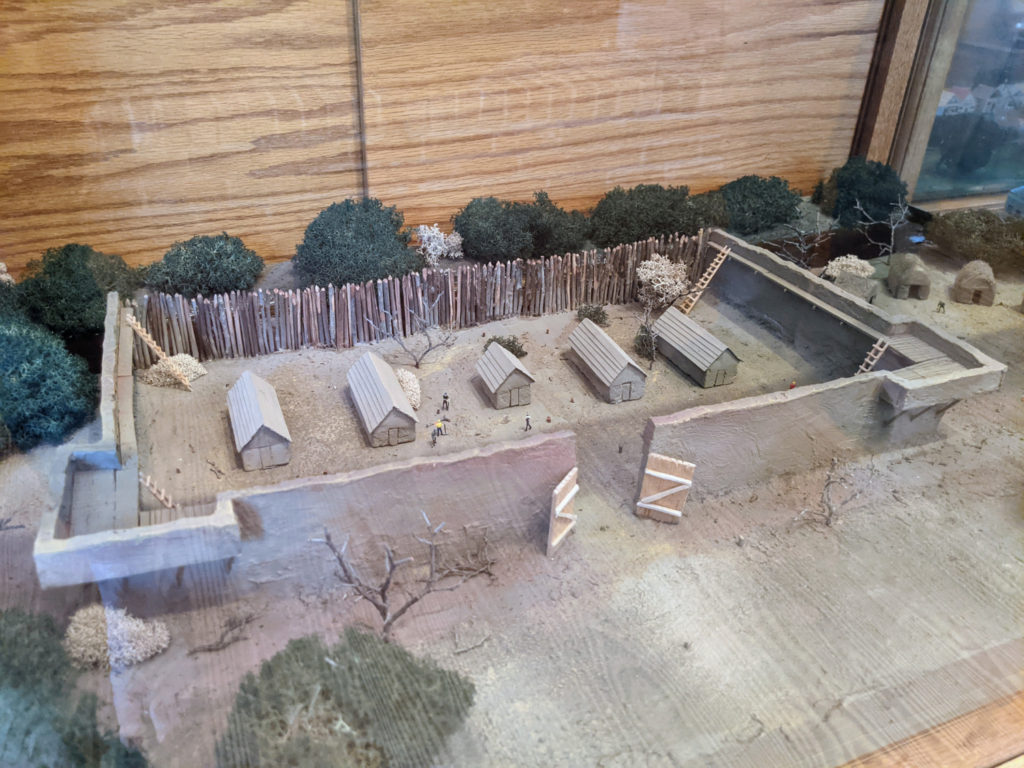
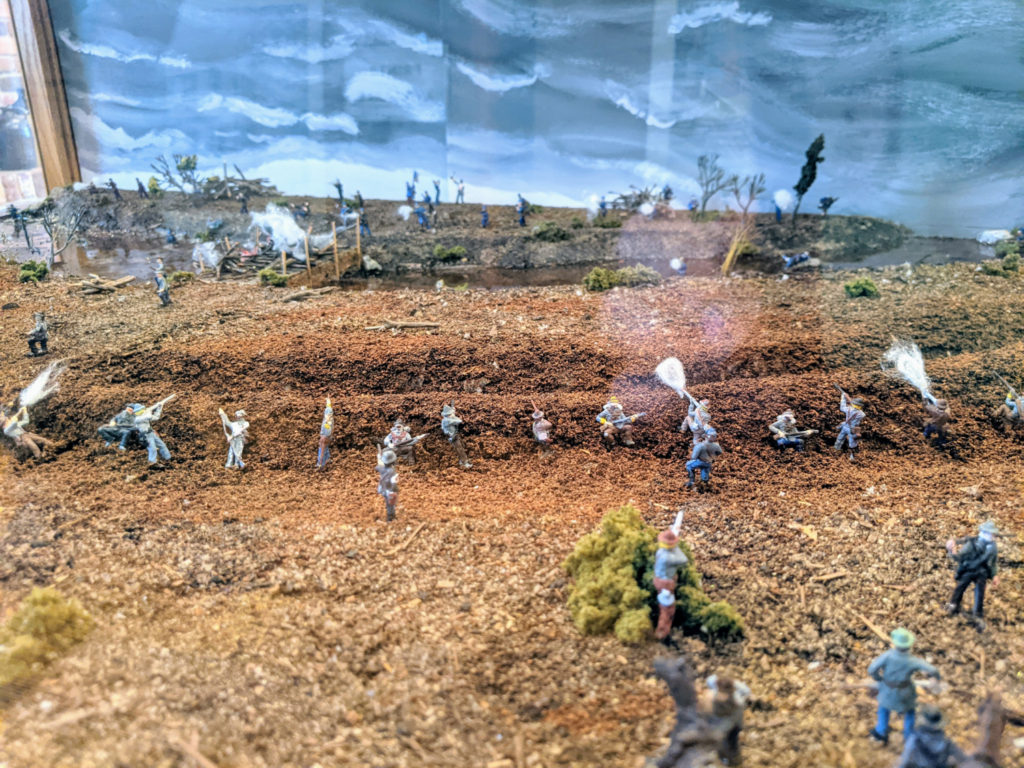
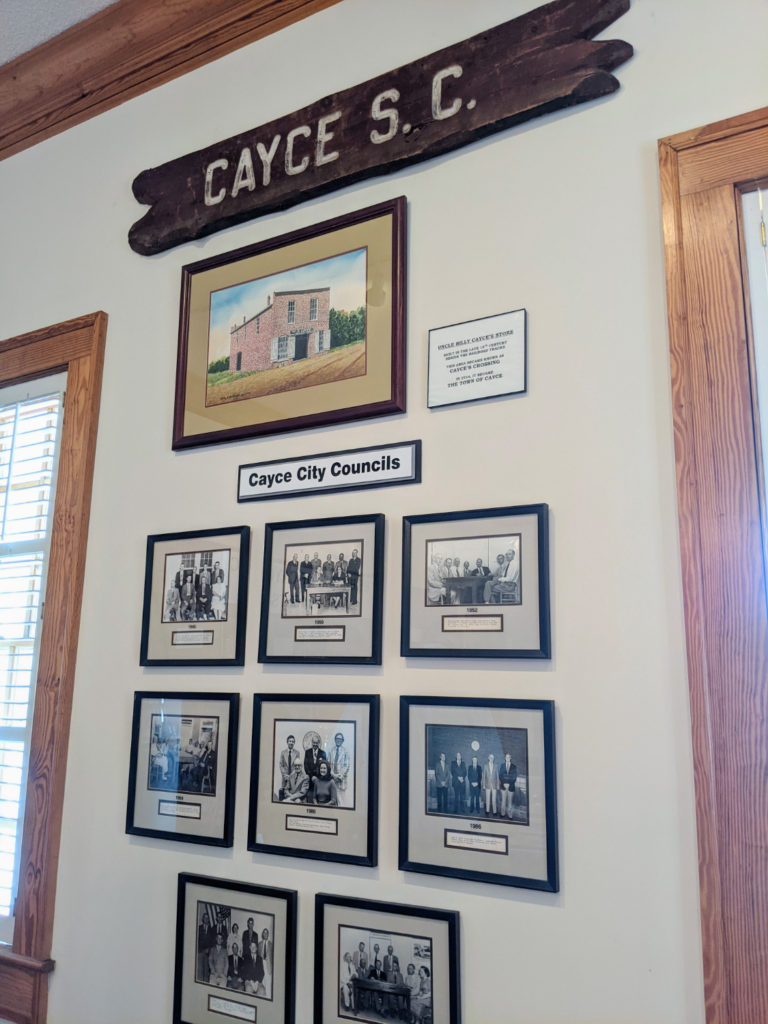
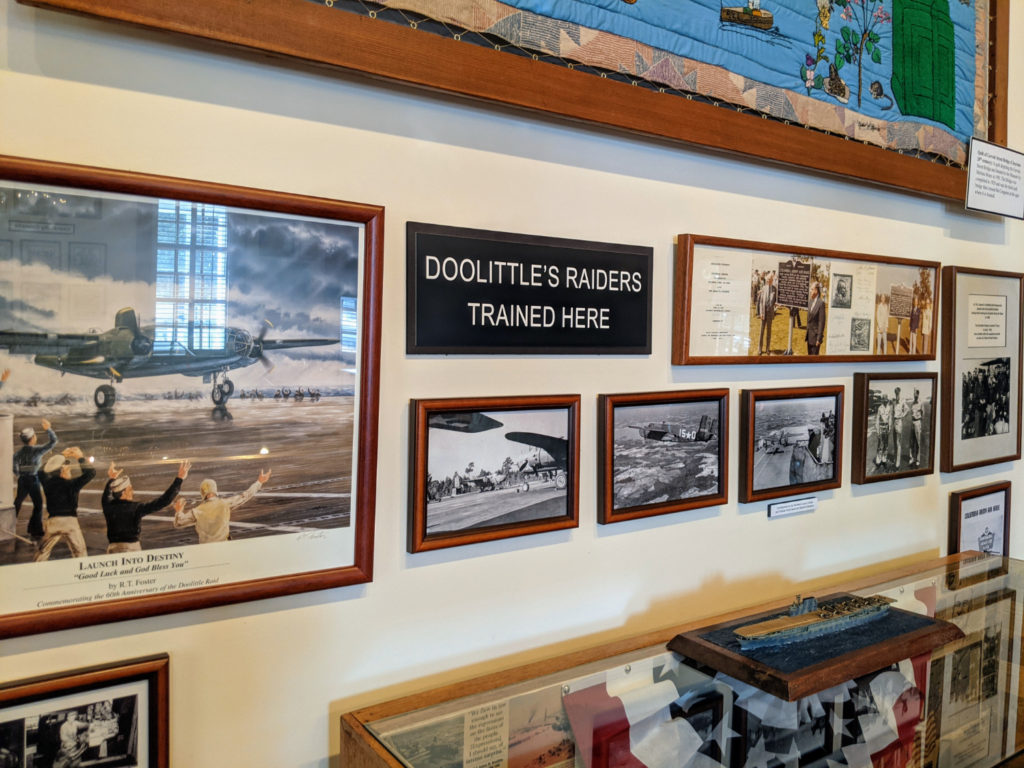
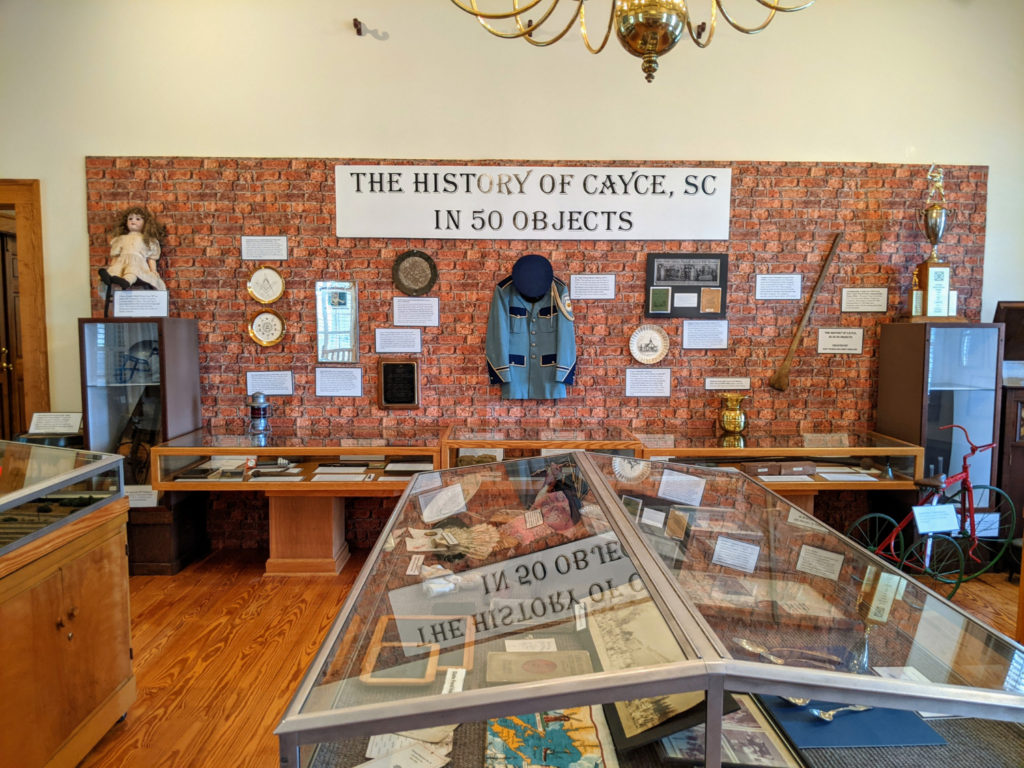
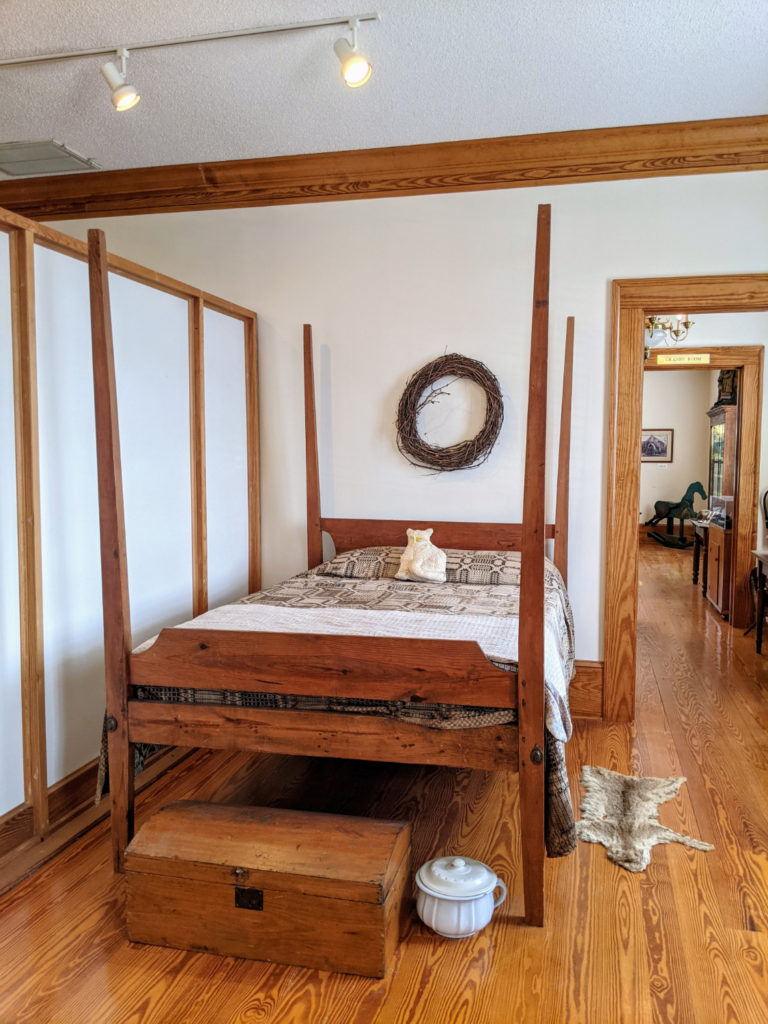
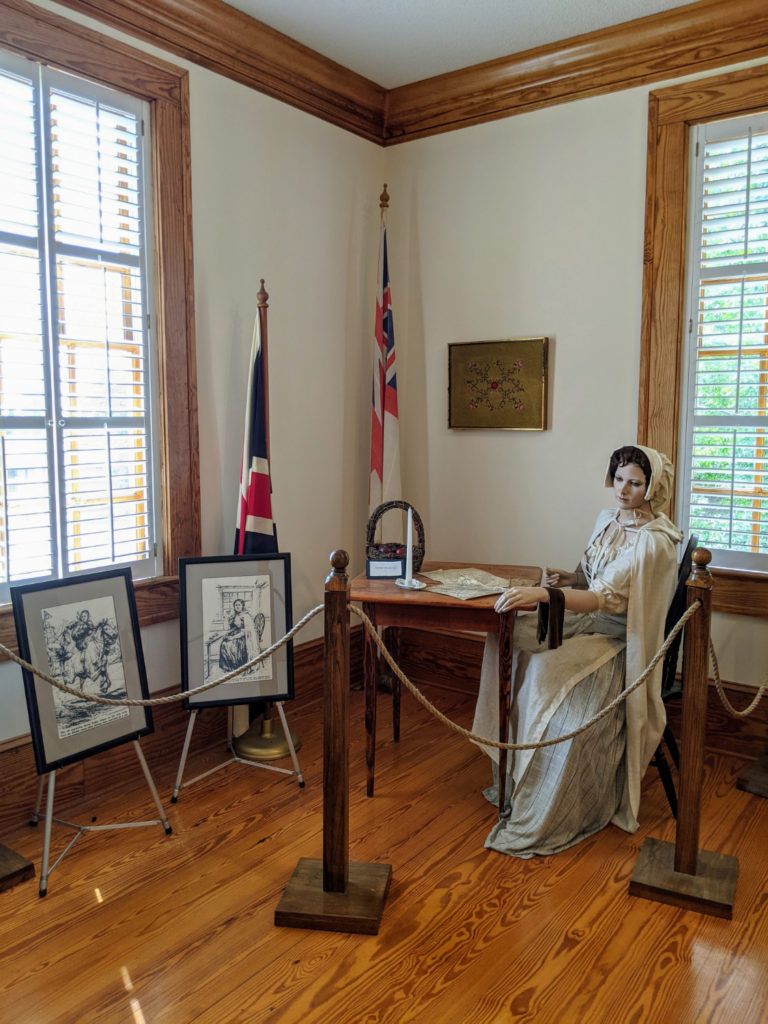
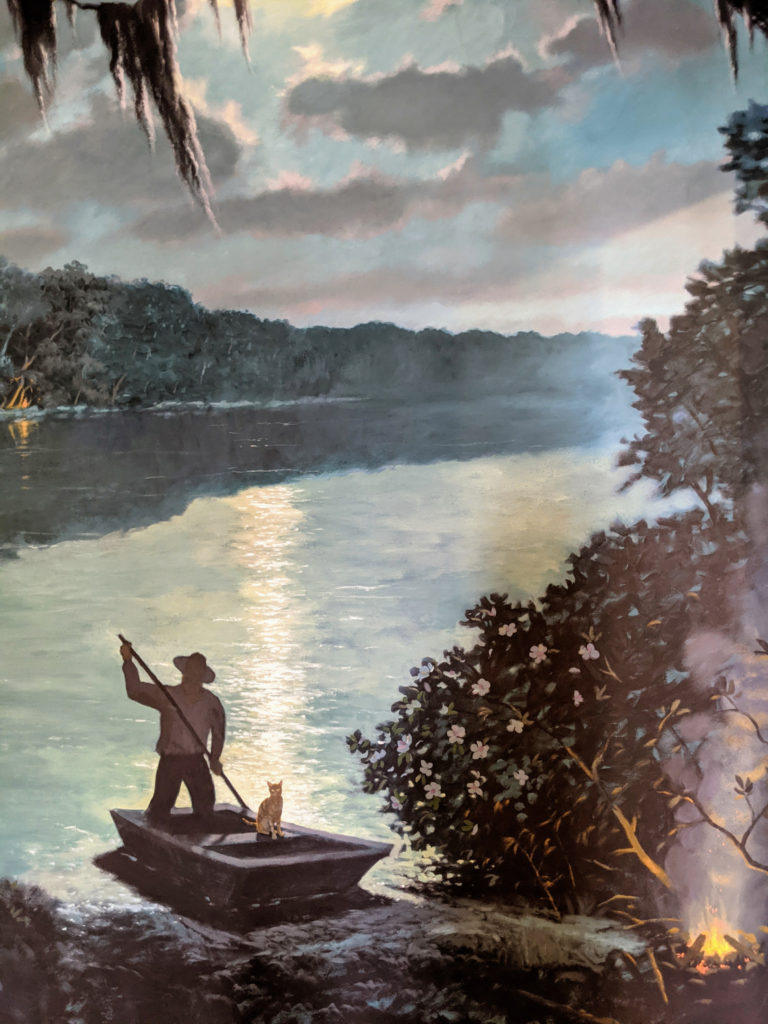
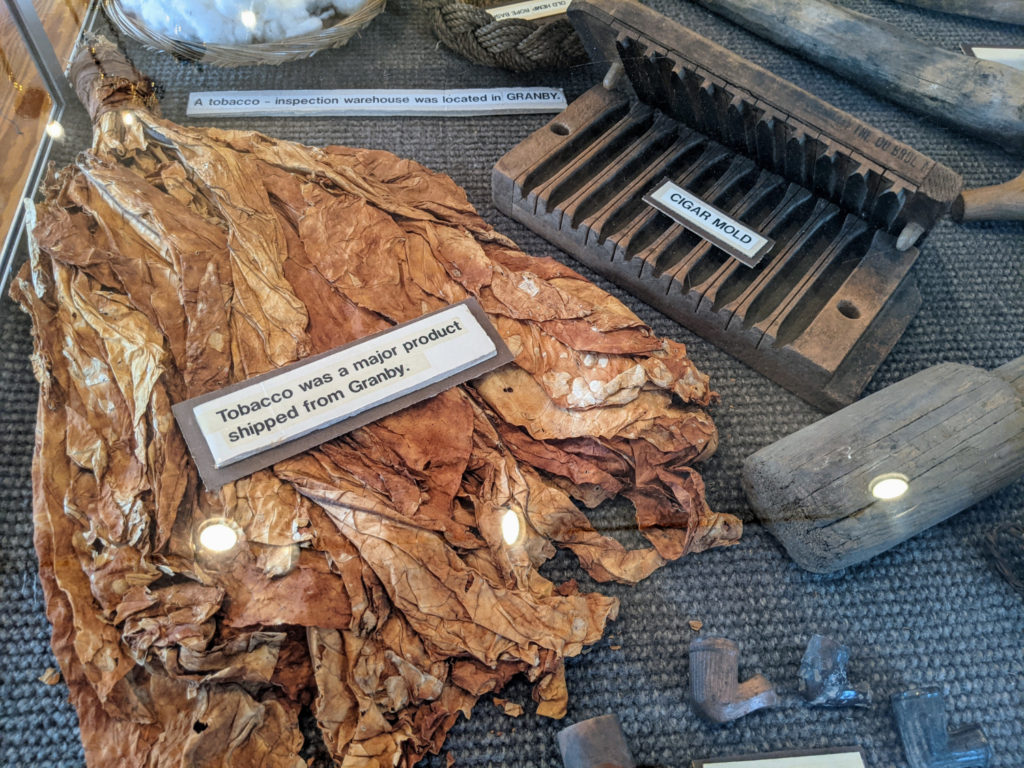
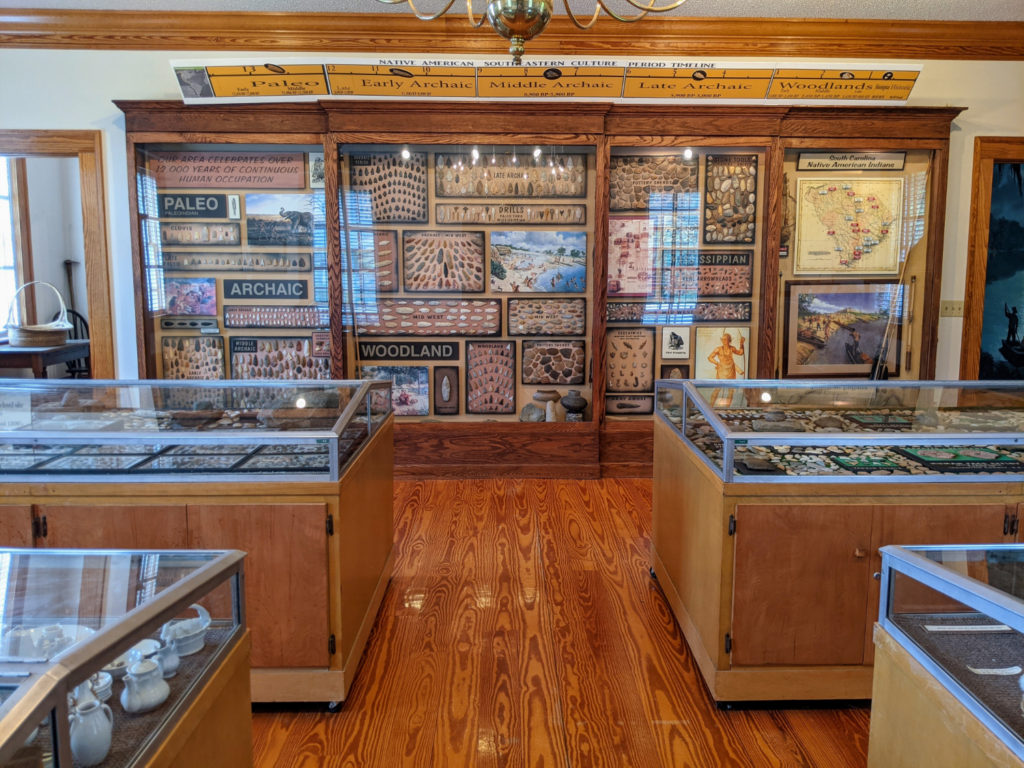
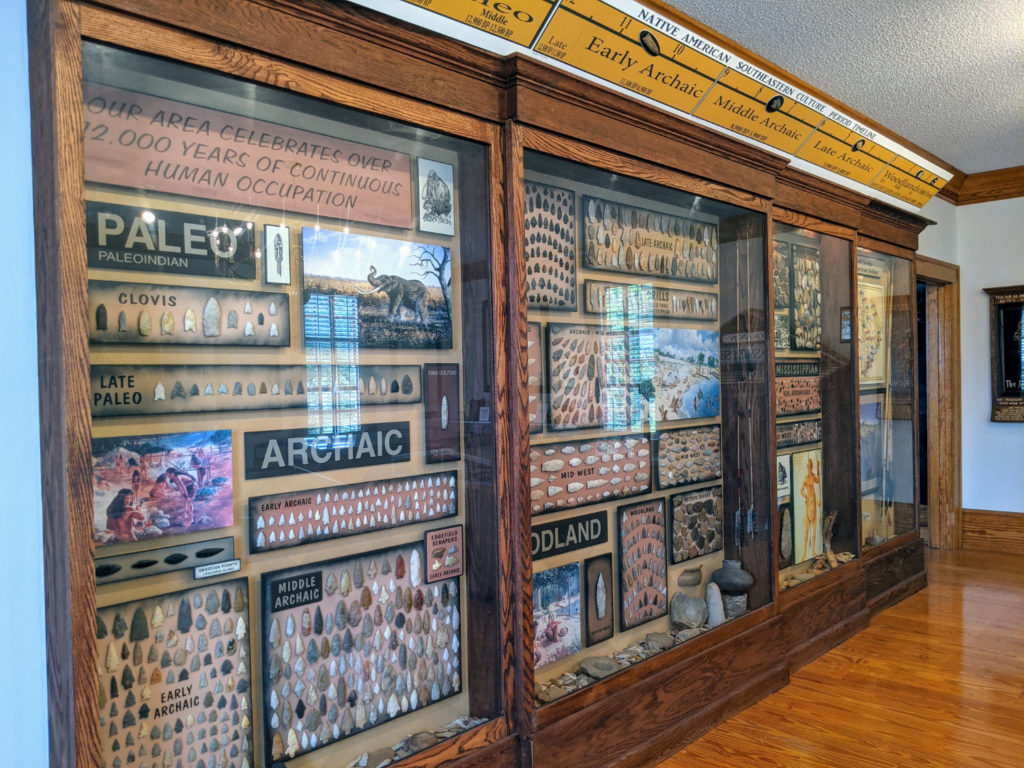
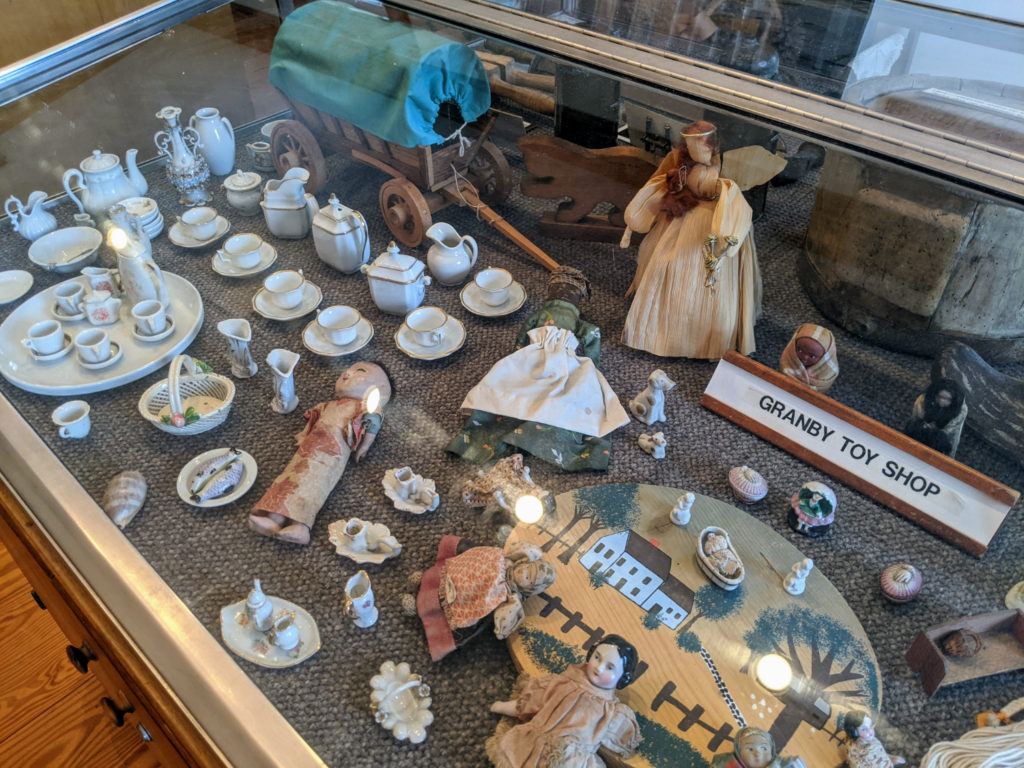
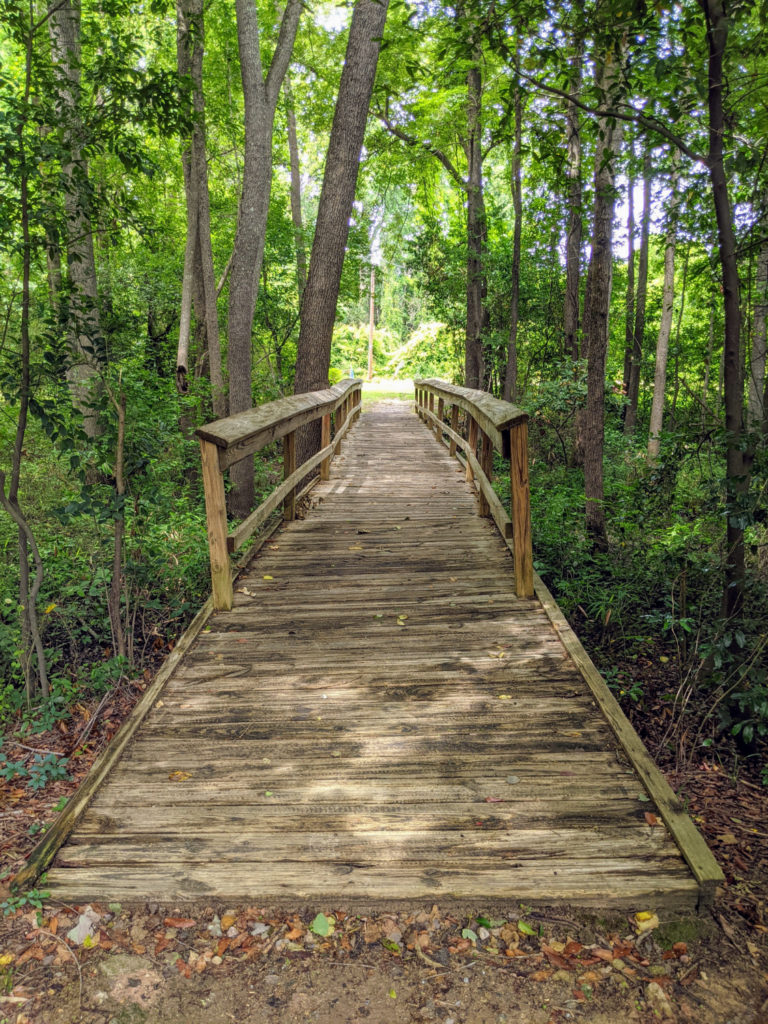
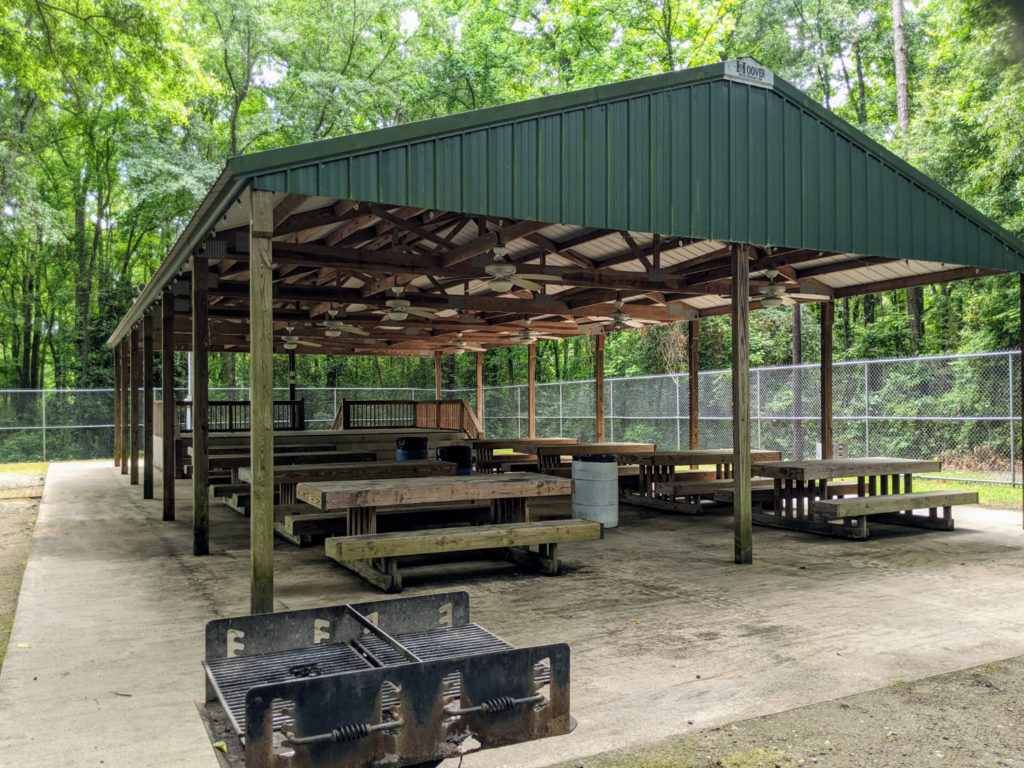
Be First to Comment